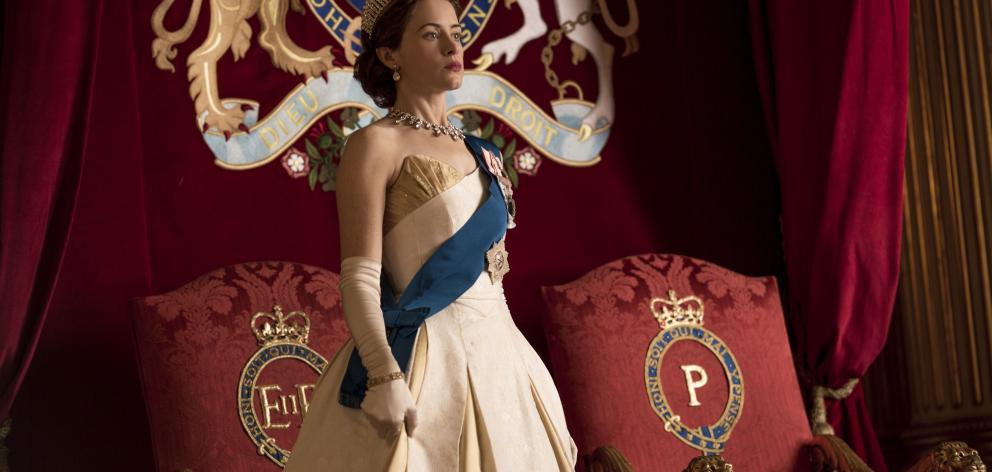
The Crown conflicts the juices. One moment I’m admiring terrific historical drama. The next, I’m waving my fork in frothbuggling outrage at its calm disdain for truth.
How can something so very good be so very bad?
As you likely know, the series starts us in 1947, with the Princess Elizabeth about to marry a rather spiky Greek. I’m now well into Series Two. The Queen is up to her fourth prime minister (Harold MacmiIlan), and the audience is beginning to think it’s possible Prince Philip’s good points may outweigh his bad.
It’s all gripping stuff — a beautifully detailed period drama that’s well told, decently acted, and very credible. And so, because The Crown "feels true", we turn it off and go to bed satisfied we’ve shared a penetrating insight into the reign of Elizabeth II. Yet much of what we chickens have just been fed doesn’t just bend the truth — it defies it.
Just one example. Harold Macmillan is drawn as a meanspirited, conniving, mediocrity whom the Queen disliked. The reality is Macmillan was a successful prime minister enjoyed by both colleagues and Queen. He was sophisticated and droll.
An anecdote that begs to be told — Macmillan’s wife, Lady Dorothy, was fond of a drink, and in a private moment, a visiting President Kennedy asked Macmillan what he’d say to the newspapers if they’d written that Her Ladyship was a drunk.
Macmillan considered the matter carefully.
"My response would be — ‘You should have seen her mother’."
The philosopher George Santayana was trying too hard when he said: "History is a pack of lies about things that never happened, told by people who were never there."
Peter Morgan, the writer who created The Crown, was "there" in the sense that he was born early in the Queen’s reign. But he should plead guilty to the "pack of lies" line. We don’t much mind blatant porkies in historical dramas about the distant past. Why worry what Elizabeth I really whispered to the Duke of Buckingham when she dropped her hanky back in 1592? The available facts are so meagre and disputable, it’s not worth getting our knickers knotted. But it is different when history is dramatised at almost the same time it’s created. Journalism, which tries to be accurate, is described as the first rough draft of history. But it’s a fair bet the invented history of the Peter Morgan biopics now has more impact than any journalists.
Morgan writes about modern people, many still breathing. He did Tony Blair and Gordon Brown in The Deal, David Frost and Richard Nixon in Frost/Nixon, and an earlier take on Elizabeth — The Queen, which won Helen Mirren an Oscar in 2007.
Fact is not the force that drives him, or most modern biopics. When writing The Queen, Morgan had no knowledge of how, 10 years earlier, Elizabeth and Prince Philip reacted to the news of Princess Diana’s death. The Royals isolated themselves in the remote Balmoral Castle, and were blinded to the growing public outrage because they’d blocked off television and newspapers to protect Diana’s young princes, William and Harry.
Morgan guessed that the isolated Royals had extraordinarily cold-hearted discussions about handling the Diana crisis — and he wrote his imaginings about them into the script. I’m sure you regularly examine the important records of the Ludwig Boltzmann Institute for the History and Theory of Biography (yes, Wit’s End is seeking the Elephant Stamp for obscure research). Morgan made interesting remarks to the institute about relative truth and that particular section of The Queen.
Morgan’s screenplay employed a stuffy retainer who’d wince each time he brought in dispatch baskets carrying the latest bad tidings on the Diana crisis.
"This man — I’ve now sort of (honestly!) really met him," Morgan revealed.
"He said — and I think it’s a really interesting quote about biography ‘You got everything wrong, but you got everything right’."
This "everything wrong but right" idea makes truth in the modern biopic rather like truth in modern portrait painting. The point isn’t creating an accurate, true-to-life rendering of a person; rather it’s painting something figurative meant to reveal an emotional insight into them. This matches up with our "Post-Truth" times, when objective facts are less important than emotive belief.
The sad fact is we watch a quality series like The Crown with no way of judging which scenes are close to the truth, and which are egregious fantasy. It makes for very good drama and very poor history. We are left beautifully misinformed.
- John Lapsley is an Arrowtown writer.











